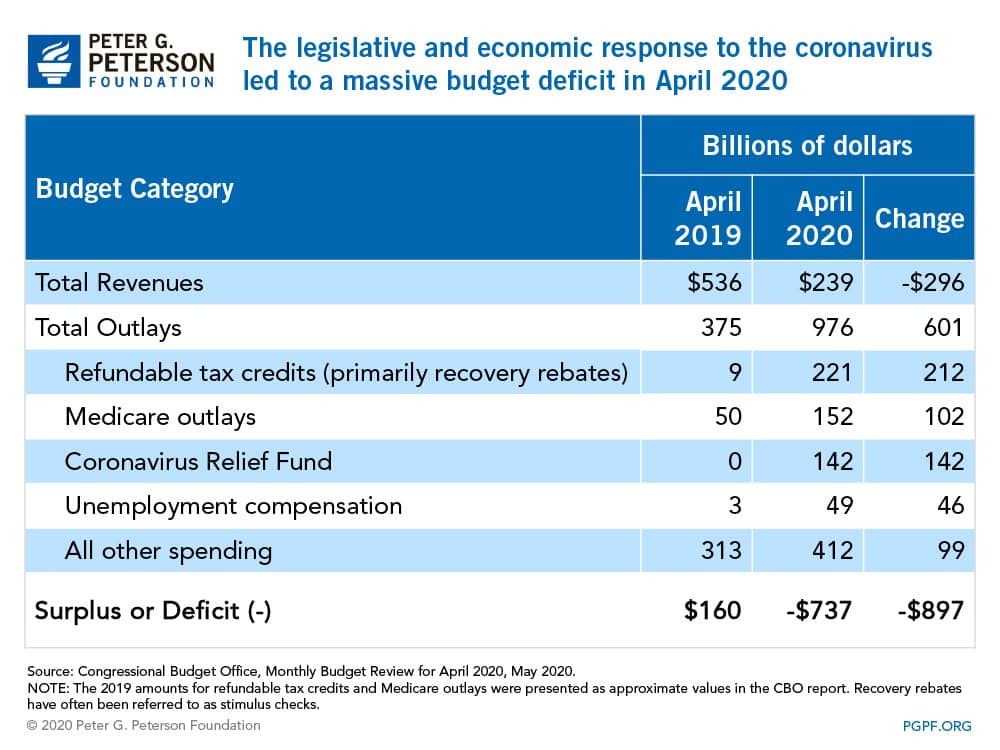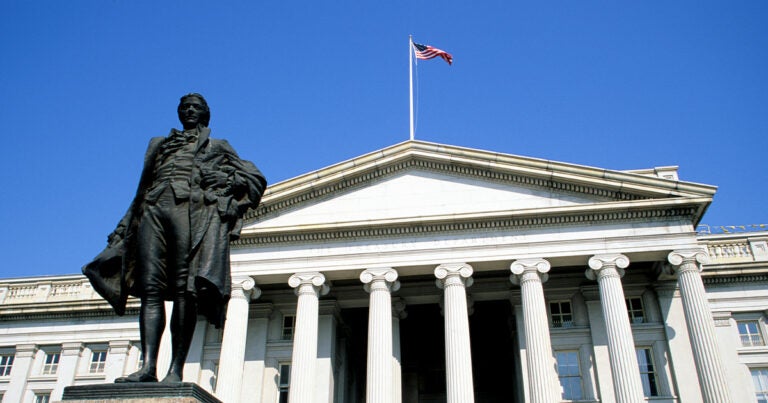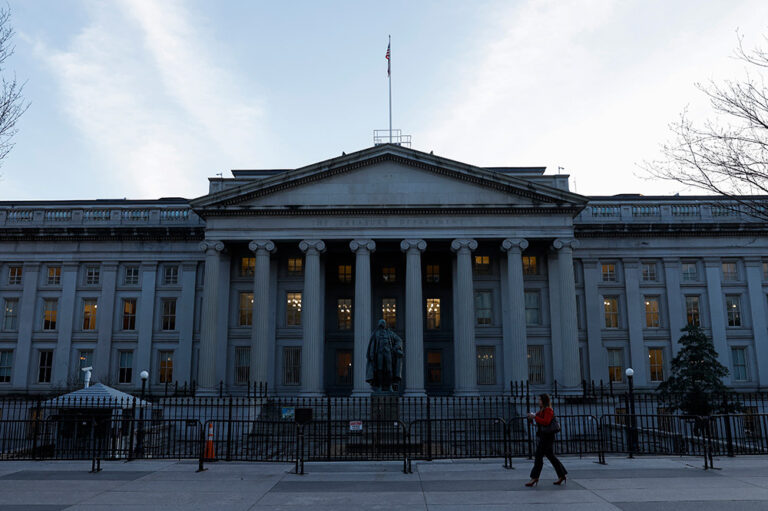The federal government typically runs a budget surplus during the month of April as it collects final tax payments for the previous year. However, the effect of the coronavirus (COVID-19) pandemic — and the legislative response to it — has instead caused the deficit to balloon as the nation takes necessary measures to fight the pandemic. A large decrease in revenues and a large increase in spending have led the Congressional Budget Office to estimate a deficit of $737 billion in April 2020:
- Revenues were considerably lower. Last year, the government collected $536 billion during the month of April. This April, receipts were only $239 billion. That drop of 55 percent can be explained by a delay in tax-filing deadlines (the CARES Act delayed them from April 15 to July 15) and lower taxable wages resulting from reduced economic activity.
- Legislation to address COVID-19 has increased outlays. The four pieces of relief legislation enacted by lawmakers thus far have resulted in substantial increases in spending. Much of that spending is for new commitments that are specifically tailored to mitigate the economic damage caused by the pandemic. Such measures include recovery rebates (often referred to as stimulus checks) for individuals, the acceleration of certain Medicare Part A and Part B payments, grants to state and local governments, and expanded unemployment insurance benefits. All told, outlays in April 2020 were $976 billion, up from $375 billion in April 2019.
The effects of COVID-19 on the federal budget are summarized in the table below.

Image credit: Photo by Drew Angerer / Getty Images
Further Reading
The Fed Reduced the Short-Term Rate Again, but Interest Costs Remain High
High interest rates on U.S. Treasury securities increase the federal government’s borrowing costs.
What Types of Securities Does the Treasury Issue?
Let’s take a closer look at a few key characteristics of Treasury borrowing that can affect its budgetary cost.
Quarterly Treasury Refunding Statement: Borrowing Up Year Over Year
Key highlights from the most recent Quarterly Refunding include an increase in anticipated borrowing of $158 billion compared to the same period in the previous year.


